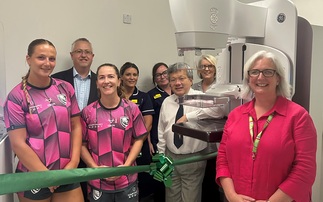How can the insurance industry address changing healthcare and wellbeing needs in the 21st century? Mike Benton suggests a radical change in focus
How has the insurance industry changed over the last 50 years? Or, perhaps more pertinently, how has it not changed? There have been enormous advances in technology which have dramatically altered the underwriting process. Distribution channels are unimaginably different from the days when the ‘Man from the Pru' went knocking door to door.
Seismic changes to life expectancy and human ‘risk' have occurred in a relatively short period of time as most of us live longer, healthier lives.
However, conventional health and life cover products have not progressed much since those far-off days when these policies were normally used to provide the wherewithal to cover funeral expenses - they are still viewed principally as financial protection against the bogeymen of death and ‘dread disease'.
This matters because it means that insurers' products no longer fit the needs of today's society: Do we keel over after a relatively brief illness not long after retirement at approximately 70 years of age, as we did in the 1960s? No, it's far more likely that we will live far into our 80s - accompanied by all the illnesses and infirmities of old age, which in turn leads to significant increases in the UK's public health spending - calculated by the Organisation for Economic Co-operation and Development (OECD) to have already reached 8.7% of GDP in 2008.
We may, however, still be working or travelling, or active and busy, in a number of ways long after retirement, yet, despite all the sophisticated medical evidence-gathering methods now available to us, be unable to access protection products despite perfect health.
Disaster prevention
What the industry needs now are products which focus on delivering genuine medical benefits at any stage of life. Concentrating on prevention, early diagnosis, lifestyle changes and rehabilitation will inevitably lead to fewer, less expensive claims. By emphasising the insurer's role in preventing ‘disaster' they save money, their customers are spared discomfort and distress, pressure on the State and the NHS is relieved, and businesses improve their absenteeism figures.
Look no further than the startling statistics surrounding dementia for proof that a far more engaged, pro-active health and wellness service can make enormous savings in terms of financial and emotional cost.
Dementia, according to the Alzheimer's Research Trust, costs the UK economy an eye-watering £23bn per year in care costs and lost productivity. That is twice the cost of cancer, three times the cost of heart disease and four times the cost of stroke. Each of the 821,884 people in the UK suffering from dementia costs our economy £27,647 every year - more than the average salary in this country.
Dementia is often spotted late, yet an early diagnosis is vitally important so treatments can be started which may slow the symptoms and also help those affected - and their carers - to better prepare for the future. Our present approach to dealing with dementia is unsustainable and leading scientists warn that the NHS will struggle to cope in future. We can add to this the human cost of the ‘sandwich' generation - those struggling to care both for elderly parents afflicted by dementia and their own children.
Much more funding for research into dementia is required but insurers could, and should, play a vital role in providing early diagnosis of this and all the other conditions which could be alleviated by diagnosis and treatment at a much earlier stage.
There have already been a number of studies demonstrating that prompt intervention and rehabilitation by insurers enables clients to recover far more quickly than by simply paying out a financial benefit without further investigation.
Tele-claims uses a single point of contact (usually a trained nurse), who already has the client's complete medical history at their fingertips, allows for practical advice and assistance, from counselling to physiotherapy to access to a specialist or a home visit.
These services may be difficult or slow to access via the NHS so this pro-active assistance provides an obvious example of time, money and distress saved on every side. The same nurses who carried out evidence-gathering at the underwriting stage should provide an ongoing preventative service once the initial relationship has been established and be available for advice on any number of medical queries.











